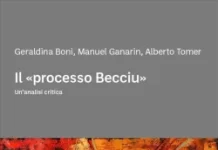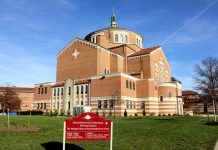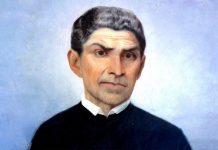The controversy arose mainly due to the use of a term in the Italian language. An apology has already been issued.
Newsroom (05/29/2024 10:16, Gaudium Press) Almost all major media outlets have covered the topic, which is not so common given their unanimity. The Pope had said, in a closed-door conversation with about 230 bishops of the Italian Episcopal Conference (CEI) on May 20, that there was a very homosexual environment in seminaries, using the term “frociaggine,” which in certain contexts is considered offensive.
The pontiff, whose native language is Spanish, had asked that homosexuals not be admitted to seminaries, but the media’s attention focused on the term “frociaggine,” which some describe as homophobic.
“The pope never intended to offend or express himself in homophobic terms, and apologizes to those who felt offended by the use of a term reported by others,” declared the director of the Vatican Press Office in a statement released to journalists.
“Pope Francis is aware of the recently published articles about a closed-door conversation with the bishops of the Italian Episcopal Conference and, as he has emphasized on several occasions: ‘In the Church, there is room for everyone, for everyone! No one is useless, no one is superfluous, there is room for everyone.'”
According to Il Corriere della Sera, more than embarrassment, the pontiff’s expression was met with some incredulous laughter, highlighting that Francis was not aware of how offensive this word is in Italian.
In any case, the Pope’s statement before the CEI ends up supporting both the Instruction on the Criteria for Vocational Discernment Regarding Persons with Homosexual Tendencies in view of their Admission to the Seminary and to Holy Orders – signed by Cardinal Grocholewski as Prefect of the Congregation for Catholic Education in 2005 – and the document The Gift of the Priestly Vocation, signed with Francis’s approval by Cardinal Stella as Prefect of the Congregation for the Clergy, where the previous document is cited, stating that “with regard to persons with homosexual tendencies who approach the seminaries, or who discover such a situation during formation, in coherence with the Magisterium, ‘the Church, although deeply respecting the persons in question, cannot admit to the Seminary and to Holy Orders those who practice homosexuality, present deeply rooted homosexual tendencies, or support the so-called gay culture. These people find themselves, in fact, in a situation that constitutes a grave obstacle to a correct relationship with men and women. Under no circumstances should the negative consequences that can derive from the Ordination of persons with deeply rooted homosexual tendencies be overlooked.'”

































